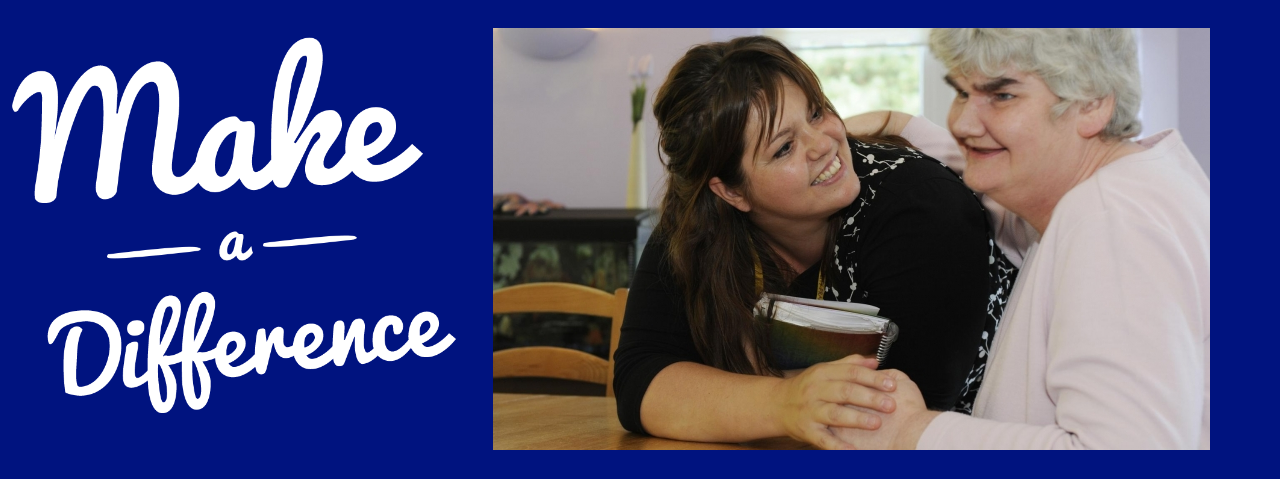Learning Disability Nurse Jobs
Learning disability nurse jobs… did you know?
Nursing is probably one of the first jobs people think of when they think of healthcare careers, but did you know you can specialise as a learning disability nurse? You can help people with learning disabilities achieve their best life by providing specialist healthcare and support. You can provide support to their families and other staff teams, too.
What you do is so important. Children who are identified as having a learning disability are now living longer and having more fulfilled lives into their teen years, adult years and old age. You can get to play a vital role in working with them across their whole life. If you like the idea of working closely with someone to get to know them and help them over time, this could be a really rewarding choice of career.
Health and Science Careers
Social Care Careers
Learning disability nurse job trends
How much money can you make as a learning disability nurse?
£22,000 – £41,000 (UK average)
Recent labour market information says you can earn on average between £22,000 and £41,000 a year as a learning disability nurse in the UK.
Your starting salary can vary because of factors like level of experience, training, or location. Your salary will increase over time as you build skills, knowledge and experience.
What entry qualifications and training do you need?
School, college and training
To get into this career, you will typically need a learning disability degree. The entry requirements for learning disability nursing degrees are set by each individual university. You’ll often need a minimum of five GCSEs at grade 4(C) or above, plus two A levels or equivalent level 3 qualifications. Some universities may ask for three A levels or equivalent.
You should check with each university before applying to see if your qualifications meet their entry requirements.
Alternatives to A-levels
Universities might accept a range of qualifications may be accepted as alternative qualifications to A-levels. These include:
- Scottish Highers/Advanced Highers
- Pearson BTEC Level 3 Diploma qualifications
- OCR Cambridge Technicals
- International Baccalaureate (IB)
- Access courses, eg Access to Nursing
You may be asked to achieve a certain level in these alternative qualifications, such as a merit or distinction in the case of BTEC.
In some cases it is possible to combine academic qualifications with vocational qualifications. For example, you might have an A level and a BTEC qualification and this combination may be accepted by universities, depending on the subjects and grades.
You can use the NHS course finder to see which universities run approved clinical courses.
If you’re not sure, contact your chosen universities for more advice.
Apprenticeships
There are increasing opportunities for healthcare support staff to apply for nursing associate apprenticeships which could lead to doing nursing degree apprenticeships. So one way into this career is to start off with a healthcare job as a school leaver then apply for a relevant nursing apprenticeship to build the specific skills and knowhow you need for working with learning disabilities.
You can apply for all kinds of apprenticeships in healthcare – so a huge range of other healthcare professions are still open to you if you want to do an apprenticeship rather than a degree.
You can complete either an apprenticeship or advanced apprenticeship in healthcare. This gives you the opportunity to earn a salary working in healthcare while getting structured learning that leads to an industry-recognised qualification.
The NHS runs traineeships, apprenticeships and cadet schemes.
NHS apprenticeships are on offer at four levels:
- Intermediate (Level 2 – equivalent to five GCSES (9-4/A*-C)
- Advanced (Level 3 – equivalent to two A-levels)
- Higher (Levels 4-7 – equivalent to foundation degree or above)
- Degree apprenticeship (Levels 6-7 – equivalent to a degree)
There are some entry requirements for NHS apprenticeships. For example, to successfully apply for an Advanced Level Apprenticeship you may need four or five GCSEs or their equivalents, sometimes in particular subjects.
To start a higher apprenticeship with the NHS you may need a Level 3 qualification or enough healthcare-related experience to show you have the skills and knowledge to apply.
Visit NHS Healthcare Careers to see the range of healthcare apprenticeships on offer.
Career progression
With time and experience you could become an advanced nurse practitioner (ANP), clinical nurse specialist (CNS) or nurse consultant. As a nurse consultant, you would work with patients, do research and train others.
You could also become a nursing team leader or manager. You could manage a learning disability unit, or lead nursing teams in a residential setting. You could also progress to become a community matron or director of nursing.
Finally, you could take on extra training to become a health visitor.
What experience do you need for learning disability nurse jobs?
Work experience
It can help you decide if this is the right career for you if you have previously done work experience in a healthcare environment. If you are applying for a nursing degree or learning disability degree, it could also help the university recognise that you’re not just about getting good grades – you have a real passion for medical care.
A starting job in healthcare also puts you in a good position to apply for a nursing associate apprenticeship, which can lead to a nursing degree apprenticeship.
Any work experience where you have demonstrated your healthcare skills can help your application. Visit the NHS Work Experience website to find healthcare work experience opportunities in your area.
Examples of relevant work experience include:
- Work shadowing (even if it’s just for a day)
- Work placements in a company
- Year-long industry placements on a sandwich degree course
Volunteering and extra-curricular activities
Volunteering is a very caring thing to do because you are choosing to give up your time to help other people. Employers may be impressed to see volunteering on your CV, and any volunteering experience related to healthcare is especially useful. Maybe you have volunteered to help vulnerable people like the homeless or elderly people?
You may have been a carer yourself for someone in the family who has learning disabilities, or helped family relatives struggling with their health. This life experience means you know what can be involved in caring for someone.
What skills do you need for learning disability nurse jobs?
What life and work skills do you need to make a great learning disability nurse?
Useful skills to highlight when applying for a position include:
- Good organisation skills because you’ll be responsible for people with a range of different needs
- Good problem solving skills – you’ll need to observe patients and take responsibility for deciding what the best next steps are to improve their wellbeing
- Writing and spoken communication skills – you need to have great listening skills as well as being able to communicate with everyone from people with learning disabilities to your colleagues at work.
- Teamworking skills – you could be mentoring or working with all kinds of professionals including support workers, physiotherapists (who work with the body), speech therapists, social workers and teachers.
- Keeping a cool head under pressure and being flexible will help you adapt to any situation and not take stress home with you.
Vocational qualifications and work experience will help you build these skills over time.
You can start to build these skills right now when you sign up with Youth Employment UK to get free Young Professional training.
What does a learning disability nurse do?
Your top responsibilities include:
- Working with people who need help with daily living, often over long periods of time
- Assessing the health and social care needs of your patients. They could be linked to physical disabilities, mental health, epilepsy and all kinds of areas
- Making sure your patients get access to any health services, treatment and therapy they might need
Some day-to-day job responsibilities include giving help and support with:
- Personal hygiene (cleanliness)
- Getting dressed
- Using public transport
- Going on trips to the shops
- Taking part in community activities or other fun activities
- Making and attending appointments
- Helping the people in your care find jobs
Your first steps into learning disability nurse jobs
Learning disability nursing jobs are advertised under different job titles. When you’re looking on job boards, look for the following types of job:
- Learning disability nurse
- Learning disability community nurse
- Health and wellbeing coordinator
- Complex healthcare assistant
- Paediatric learning disabilities nurse (if you specialise in being a champion for children).
Useful organisations and links



So what are you waiting for? Grab your future.












